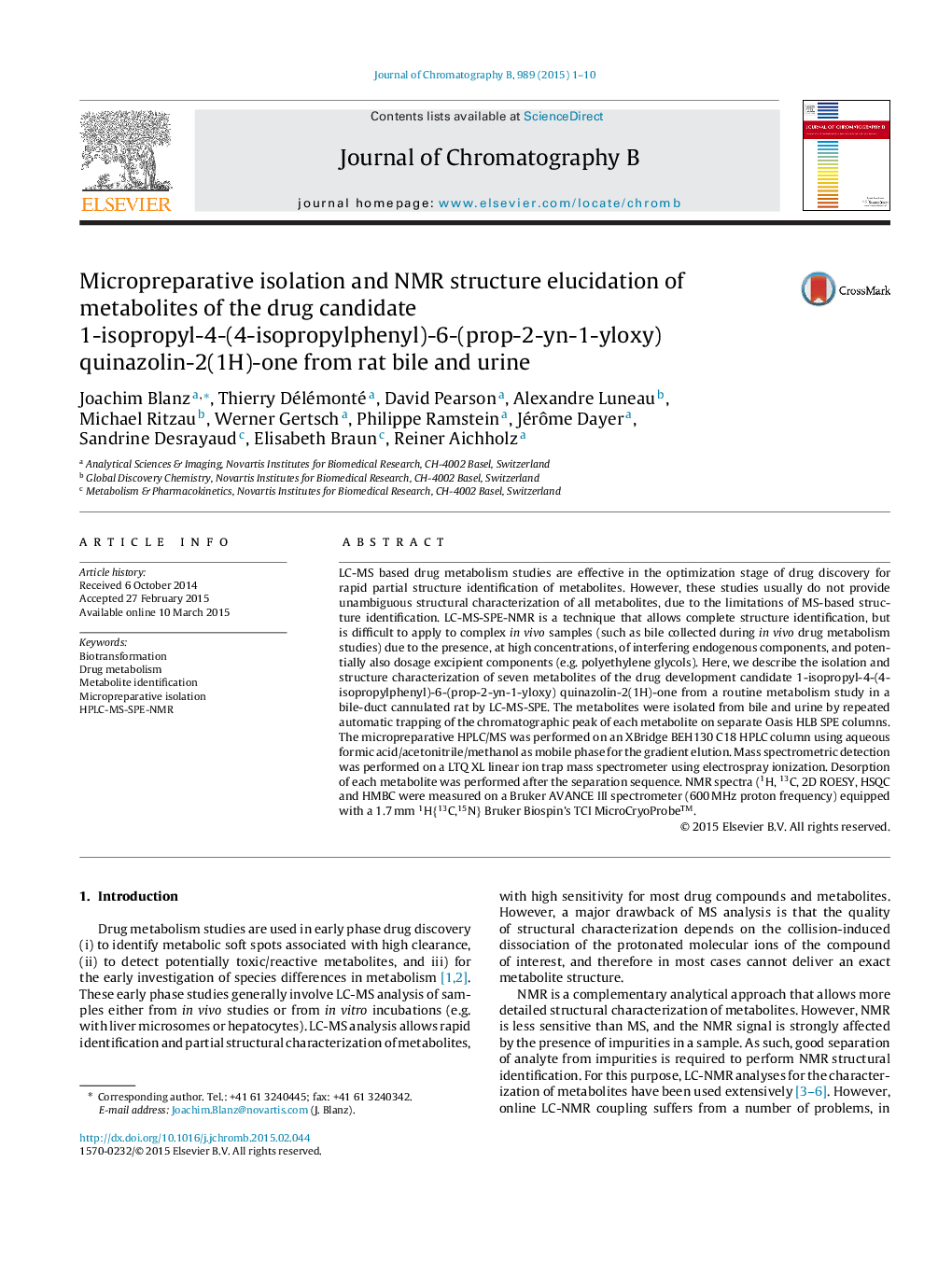| Article ID | Journal | Published Year | Pages | File Type |
|---|---|---|---|---|
| 1212242 | Journal of Chromatography B | 2015 | 10 Pages |
•We performed LC-MS-SPE-NMR analysis of drug metabolites from an in vivo study.•Seven metabolites of a drug candidate were isolated from bile and urine.•The structures of all seven metabolites were unambiguously determined.•Higher information content was obtained than from conventional LC-MS analysis.
LC-MS based drug metabolism studies are effective in the optimization stage of drug discovery for rapid partial structure identification of metabolites. However, these studies usually do not provide unambiguous structural characterization of all metabolites, due to the limitations of MS-based structure identification. LC-MS-SPE-NMR is a technique that allows complete structure identification, but is difficult to apply to complex in vivo samples (such as bile collected during in vivo drug metabolism studies) due to the presence, at high concentrations, of interfering endogenous components, and potentially also dosage excipient components (e.g. polyethylene glycols). Here, we describe the isolation and structure characterization of seven metabolites of the drug development candidate 1-isopropyl-4-(4-isopropylphenyl)-6-(prop-2-yn-1-yloxy) quinazolin-2(1H)-one from a routine metabolism study in a bile-duct cannulated rat by LC-MS-SPE. The metabolites were isolated from bile and urine by repeated automatic trapping of the chromatographic peak of each metabolite on separate Oasis HLB SPE columns. The micropreparative HPLC/MS was performed on an XBridge BEH130 C18 HPLC column using aqueous formic acid/acetonitrile/methanol as mobile phase for the gradient elution. Mass spectrometric detection was performed on a LTQ XL linear ion trap mass spectrometer using electrospray ionization. Desorption of each metabolite was performed after the separation sequence. NMR spectra (1H, 13C, 2D ROESY, HSQC and HMBC were measured on a Bruker AVANCE III spectrometer (600 MHz proton frequency) equipped with a 1.7 mm 1H{13C,15N} Bruker Biospin's TCI MicroCryoProbe™.
